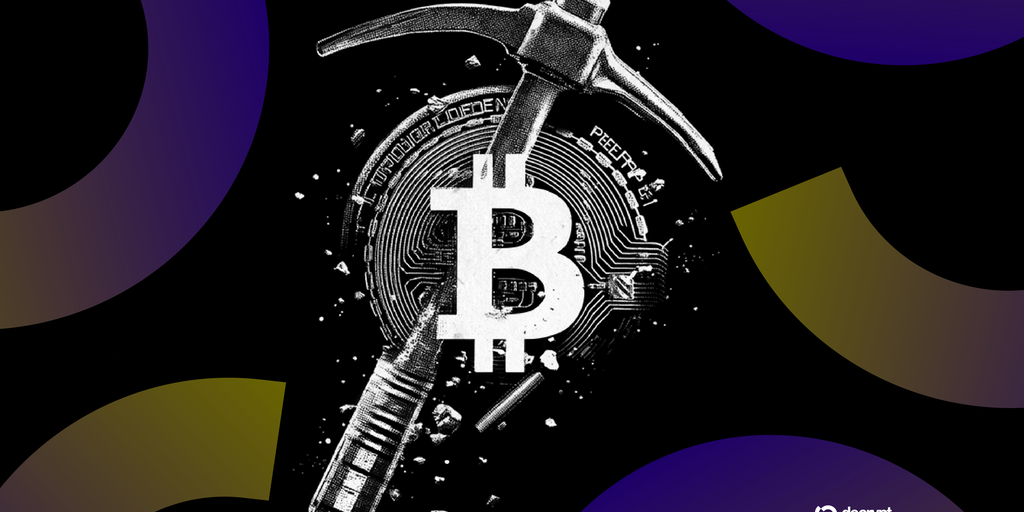
In brief
- SharpLink Gaming’s treasury strategy will be a positive “white swan event” for Ethereum as it helps educate traditional players, its co-CEO told Decrypt.
- Some industry observers fear that the crypto treasury trend could end badly for the industry, as swarms of companies have started stockpiling digital assets this year.
- Joseph Chalom, co-CEO of SharpLink Gaming, said that public treasury companies are required to be transparent and follow stricter regulations—unlike crypto’s black swans of the past.
SharpLink Gaming’s co-CEO is pushing back on concerns that the crypto treasury trend will negatively impact the industry, telling Decrypt that it will not be the black swan event that drags down the crypto market this cycle, akin to the FTX collapse of the past.
Rather, the recently appointed leader for the publicly traded company—which has rapidly amassed over $3.7 billion worth of Ethereum—believes it will be a positive “white swan event“ that brings institutional ETH adoption to levels never seen before.
Joseph Chalom told Decrypt that the firm is putting Ethereum on the radar of non-crypto companies and educating them on the potential of the network. As such, he thinks it’s “inevitable” that more big players will adopt Ethereum as stablecoins and tokenization become mainstream.
“When they start realizing that they can reduce their capital requirements for trading, when they think they can reduce the risk involved in trading and transacting, and moving money, I think it’s going to be inevitable,” he explained. “The white swan event is: We’re explaining to users what the potential is, and you’re starting to see that adoption.”
The comments come amid growing concern that the surging crypto treasury company trend could end in disaster, with fears intensifying at the same pace as the trend’s growing popularity as bears cite the huge amounts of tokens the biggest firms are accumulating.
SharpLink, at the time of writing, holds 837,230 ETH, or approximately 0.69% of the total circulating ETH supply—raising concerns about whether they’d ever sell.
“We are not sellers of Ethereum. We are accumulators of Ethereum,” Chalom told Decrypt. “And if there are moments that you need liquidity, you can raise liquidity through debt instruments. You could do stock buybacks. So our intent is not to sell our Ethereum. It’s a reserve asset, not a trading asset.”
This approach was pioneered by Michael Saylor’s Bitcoin treasury company, Strategy, previously known as MicroStrategy. The one-time business software company has raised capital via debt instruments such as multiple rounds of convertible note offerings, and continued to stockpile BTC—now holding over $72 billion worth.
Consequently, users on Myriad Markets—a prediction market developed by Decrypt’s parent company DASTAN—see a more than 94% likelihood that Strategy will not sell any Bitcoin this year.
As a result, Chalom categorically ruled out the crypto treasury trend being the black swan event of this cycle—a term for a rare event that has a severe impact on the market, such as the FTX collapse.
“Absolutely not, unless you mean the black swan event to drive mind share and adoption,” Chalom said. “The reason why I say it’s just not even in the same league as [FTX] is this is the most transparent approach you can have.”
The former BlackRock head of digital assets strategy explained that due to SharpLink being a public company, it is regulated by the SEC and required to follow Nasdaq rules. The firm puts out a weekly press release disclosing its holdings, purchase price, accumulated ETH rewards, and more. By comparison, he argues, the FTX situation came out of a lack of transparency.
As Sam Bankman-Fried’s FTX crumbled, it was discovered that the crypto exchange was sharing customer funds with his trading firm Alameda Research, to help shore up its losses. That meant that when a large number of FTX users sought to withdraw their funds, the exchange didn’t have the capital ready to fill those requests.
Chalom argued that a public company couldn’t get away with such a scheme, due to its required transparency and adherence to regulations. Still, FTX was required to follow the law even as a private company, and Bankman-Fried was ultimately sentenced to 25 years in prison for his involvement in fraud and conspiracy at FTX.
Chalom believes that SharpLink is building interest in Ethereum among major institutions, which he thinks will soon adopt the technology. Be it stablecoins, tokenizing real-world assets, or deploying programmable money, the co-CEO expects that the biggest players will be using Ethereum soon. And, he says, SharpLink is the first step in educating those players about cryptocurrency.
“There’s a giant amount of education here,” Chalom said. “And I think it doesn’t take convincing, it takes explaining.”
When compared to Bitcoin, which is often marketed as “digital gold,” selling Ethereum to traditional investors is a much more complicated process. That’s why, he said, Ethereum’s price may have lagged behind Bitcoin’s over the past year as investors flocked to Bitcoin ETFs more than Ethereum ones. That, he said, is set to change.
“It was just easier to explain its role in a portfolio,” Chalom said of Bitcoin. “[With] Ethereum, you’re telling them a network effect growth story, that is no different in some ways than Web1 and the internet. It’s essentially the decentralized internet moment of both finance and other real-world activity.”
“That just took a look a little bit longer to explain, and the adoption will take longer,” he added. “It just may have an impact that’s 10, 20x on what Bitcoin has had on the financial ecosystem.”
Daily Debrief Newsletter
Start every day with the top news stories right now, plus original features, a podcast, videos and more.




